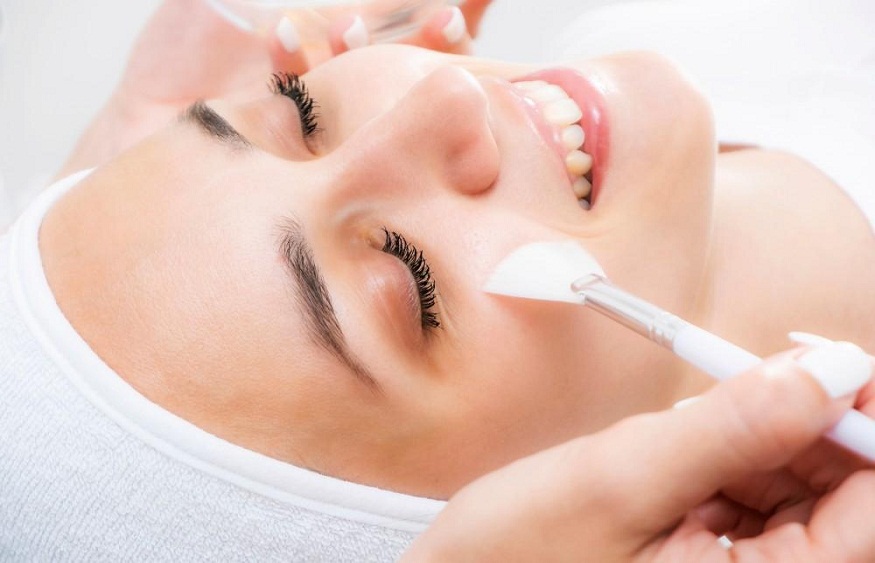Winter waves its magic wand, and the world becomes a white wonderland. But your skin? Not so much. In the cold season, it can turn dry, flaky, even itchy. In this guide, I’ll share some dermatologist-approved ways to defend your skin against winter’s harsh winds. The tips will range from simple home solutions to professional treatments like longboat key chemical peels. So, grab your hot cocoa, settle in, and let’s journey towards healthier winter skin.
Moisturize, Moisturize, Moisturize
One of the simplest ways to combat dry winter skin is to moisturize. Winter air can be harsh, stripping the skin of its natural moisture, so it’s essential to replenish what’s lost. Go for lotions and creams that contain natural oils like shea butter, olive oil, or jojoba oil. These oils are excellent for hydrating your skin without clogging your pores. For best results, apply your moisturizer immediately after bathing, when your skin is still slightly damp. This helps to lock in moisture and keep your skin feeling soft and smooth all day long.
Eat for Skin Health
A healthy diet can give your skin the nutrients it needs to combat winter dryness. What you eat has a direct impact on your skin’s health. Include foods rich in Omega-3 fatty acids, such as salmon, flaxseeds, and walnuts. Omega-3s help to strengthen your skin’s barrier, preventing moisture loss and reducing inflammation. Additionally, Vitamin E-rich foods like almonds, sunflower seeds, and spinach are powerful antioxidants that protect your skin from the oxidative stress that can be exacerbated by cold weather. Don’t forget to stay hydrated by drinking plenty of water, as well—hydration from within is just as crucial as external moisture.
Humidify Your Home
Winter air is notoriously dry, and central heating systems can make it even worse. A humidifier is a great tool to help maintain moisture in the air, which in turn helps your skin stay hydrated. Place a humidifier in your bedroom to add moisture to the air while you sleep, and consider using one in other frequently used rooms in your home. This simple step can make a big difference in how your skin feels throughout the winter months.
Gentle Cleansing
The type of cleanser you use during the winter can make a significant difference in your skin’s health. Avoid harsh soaps and choose gentle, hydrating cleansers instead. Look for products that are sulfate-free and contain moisturizing ingredients like glycerin or hyaluronic acid. Over-cleansing or using harsh cleansers can strip your skin of its natural oils, leading to even more dryness and irritation. Cleansing your skin gently will help maintain its natural barrier and keep it healthy.
Don’t Forget Sunscreen
Just because it’s winter doesn’t mean you should skip the sunscreen. UV rays can still penetrate through clouds and reflect off snow, leading to potential skin damage. Choose a broad-spectrum sunscreen with at least SPF 30 and apply it to all exposed skin areas. Sunscreen not only protects your skin from harmful UV rays but also helps prevent further drying and premature aging caused by sun exposure.
Professional Treatments for Winter Skin
For severe skin dryness and other winter-related skin issues, you might need more than just home remedies. Professional treatments like longboat key chemical peels can help rejuvenate your skin by removing dead skin cells and promoting the growth of new, healthy cells. Chemical peels can be especially beneficial in the winter months, as they help to treat dry patches, dull skin, and fine lines. Consult with a dermatologist to determine the best type of peel for your skin type and concerns.
Treat Your Lips
Winter can be particularly harsh on your lips, leaving them chapped and cracked. Regularly apply a lip balm that contains nourishing ingredients like beeswax, shea butter, or coconut oil. For added protection, look for lip balms with SPF to shield your lips from the sun’s rays. Avoid licking your lips, as saliva can dry them out further. Exfoliating your lips gently once a week can also help remove dead skin cells and keep your lips soft and smooth.
Hands and Feet Need Love Too
Your hands and feet are often the first to show signs of winter’s wrath. Regular handwashing, while necessary, can strip your skin of moisture, leading to dry, cracked hands. Apply a thick hand cream after washing your hands, and wear gloves when you’re outside to protect your skin from the cold. For your feet, a rich foot cream can help to keep them soft and free from cracks. Consider wearing socks to bed after applying the cream to lock in moisture overnight.
Dress Smartly
Your clothing choices can also impact your skin’s health during winter. Wool and synthetic fabrics can irritate dry, sensitive skin, so try to wear breathable, soft fabrics like cotton next to your skin. Layering is key to staying warm without overheating, which can lead to sweating and further irritation. Also, don’t forget to wear gloves and scarves to protect your hands and face from the biting cold.
Comparison Table: Home Remedies vs. Professional Treatments
| Home Remedies | Professional Treatments |
| Cost | Low |
| Effectiveness | Moderate |
| Convenience | High |
| Personalization | Limited |
Conclusion
Winter doesn’t have to be the enemy of your skin. By following these dermatologist-approved tips and considering professional treatments when necessary, you can keep your skin looking and feeling its best throughout the colder months. Remember, consistency is key—make these practices a part of your daily routine, and you’ll be on your way to healthy, glowing skin all winter long.

